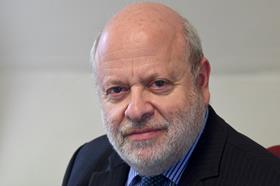‘Let me tell you about the very rich. They are different from you and me,’ F. Scott Fitzgerald wrote a hundred years ago.

One of the ways in which the very rich differ from us is in the lawyer stories they spawn. There is a decent novel to be written about the relationships between billionaires and lawyers.
Donald Trump is one example. His lawyers face disbarment, public protest, criminal prosecution and bankruptcy. But enough has been written about them.
On the other hand, here are some stories about lawyers in the orbit of the world’s richest person, Elon Musk (pictured). As with Trump’s lawyers’ stories, they illuminate certain aspects of legal life.

First, Musk recently launched his own campaign against lefty lawyers. The target may surprise you, since it was Latham & Watkins. Lathams fits no one’s idea of lefty lawyers. It is a west coast US firm that has over 3,000 lawyers working in 30 offices around the world, coming in second on global revenue at over $5bn in 2022, and with profits per partner last year at more than $5m.
The reason for Musk’s ire was that Lathams acted pro bono for the homeless in San Francisco, in conjunction with a local NGO. There are severe problems with homelessness and drug addiction in San Francisco, with consequences for those living in and running businesses in the city. The solutions are complex.
Last year, Lathams lawyers won an emergency order that restricts the city from clearing homeless encampments, on the grounds that it is unconstitutional, and only exacerbates the crisis by taking away survival gear like tents from people who have nowhere else to go. The city argues that the order hampers San Francisco’s ability to promote public health and safety.
Musk posted on X: ‘Let’s ask our companies to cease all work with @lathamwatkins’, and then later ‘They want war? Let’s give it to them. We cannot let these snakes win or San Francisco will end up like Detroit. The clincher was discovering that this is actually just a tax write off for Latham, not actually “pro bono” at all.’
There are two contextual notes. First, the cost of lawyers’ pro bono work is apparently not tax deductible in the US. Second, as at the end of last month, Reuters discovered that Lathams was still acting for X in at least three lawsuits.
This was not Lathams’ only success for the homeless. The firm also secured a landmark judgment decriminalising homelessness in Idaho, when the homeless had nowhere else to sleep because there were not enough shelters.
Now to the other side of the coin. I was rather surprised to read that eminent US lawyer David Boies has a billing rate of $2,110 per hour. This emerged as a result of his representation of sex-trafficking victims of Jeffrey Epstein, in a lawsuit against Deutsche Bank, which had been accused of facilitating Epstein’s wrongdoing.
The fee was disclosed because lawyers for the plaintiffs are seeking 30% of the settlement, and the fee-per-hour sought in that way comes out at 2.2 times the amount that Boies and other lawyers in the case would have earned based on their billing rates and time spent. (There are lawyers at Hogan Lovells and Covington & Burling who have rates above $2,000 per hour as well.)
And now we come to the Musk connection. The amounts cited above are dwarfed by the fees sought by lawyers who forced Tesla’s directors to agree in July to return more than $700m in compensation to Tesla.
The 12 director defendants, including James Murdoch and Larry Ellison, agreed to return $735m in compensation, forego another potential $184m, and overhaul the way the board determines director pay. The money from the settlement will be paid to Tesla, and benefits shareholders indirectly, in what is known as a derivative lawsuit.
The law firms estimate the total settlement value at $919m, and are seeking 25% of that as a fee, along with about $1m in expenses. This would come to about $10,690 in fees an hour – $10,690 an hour! Partners and other staff from two New York firms involved each billed more than 10,000 hours.
Apparently, courts review fee requests by examining the need to reward risk-taking and effort, while preventing a disproportionate windfall that can undermine confidence in the legal system. In a previous judgment in Delaware (where this lawsuit takes place), when the fee rate claimed was $35,000 per hour, it was said that judges should examine the outcome achieved, not the hourly rate.
Who is our modern F. Scott Fitzgerald or Edith Wharton? I have difficulty coming up with a name, but he or she may find some useful background in this for an entertaining novel.
Jonathan Goldsmith is Law Society Council member for EU & International, chair of the Law Society’s Policy & Regulatory Affairs Committee and a member of its board. All views expressed are personal and are not made in his capacity as a Law Society Council member, nor on behalf of the Law Society































No comments yet